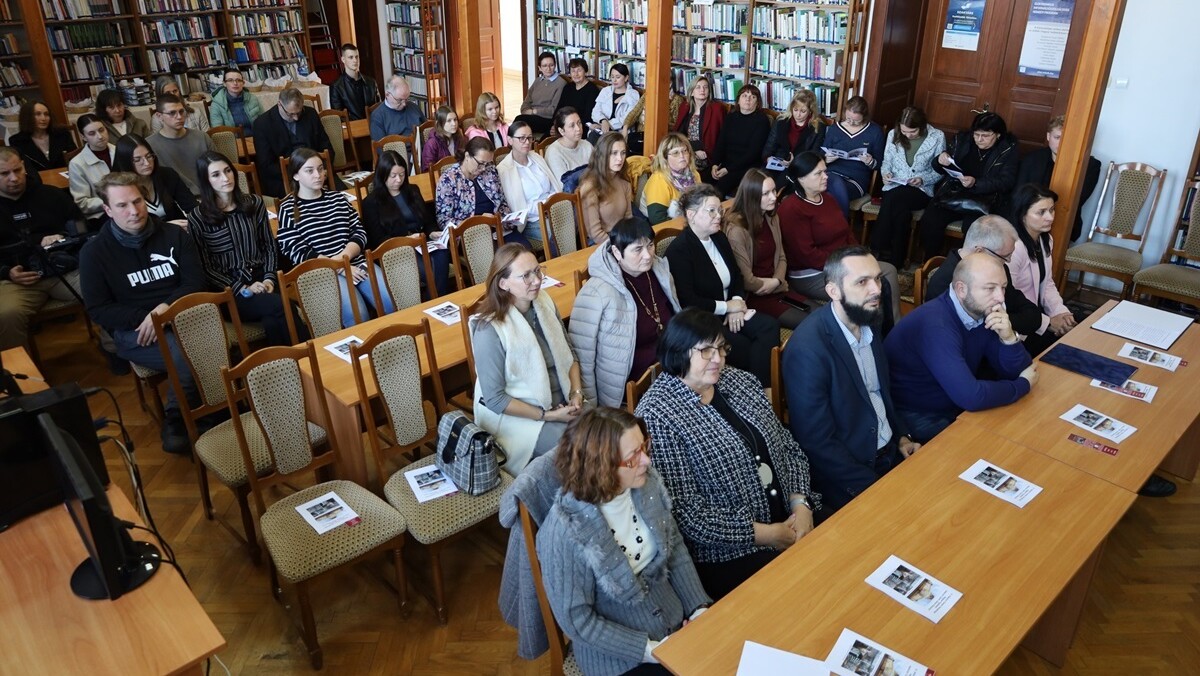The János Apáczai Csere Library of the University of Rakoczi celebrates its 30th anniversary
This year marks the 30th anniversary of the János Apáczai Csere Library of the Ferenc Rakoczi II Transcarpathian Hungarian University. The jubilee served as an occasion to look back on the institution’s journey, to pay tribute to its achievements, and to reaffirm its commitment to the future. The celebratory event was held on October 17, in conjunction with the 400th anniversary of János Apáczai Csere’s birth, honoring the pioneer of knowledge, education in the mother tongue, and culture.
At the beginning of the commemoration, attendees were greeted by the library staff and the university’s leadership, along with a representative of the Consulate of Hungary in Beregszász. The event recalled the life and legacy of János Apáczai Csere, who, starting from 17th-century Transylvania, became one of the most significant figures in Hungarian philosophical and pedagogical thought—his intellectual heritage still serving as a compass in the world of education and science today.
The history of the János Apáczai Csere Library was presented by its current director, Erika Sass.
“The foundations of the library were laid in 1994, when, upon the initiative of the Charity Foundation for the Transcarpathian Hungarian College, Hungarian-language higher education began in the region. The library was established together with the university, and by 1996 it already had separate departments—a lending section and a reading room. In 2005 it took on the name of János Apáczai Csere, and in the same year moved into the university’s new building, which provided it with a worthy home,”
she highlighted.
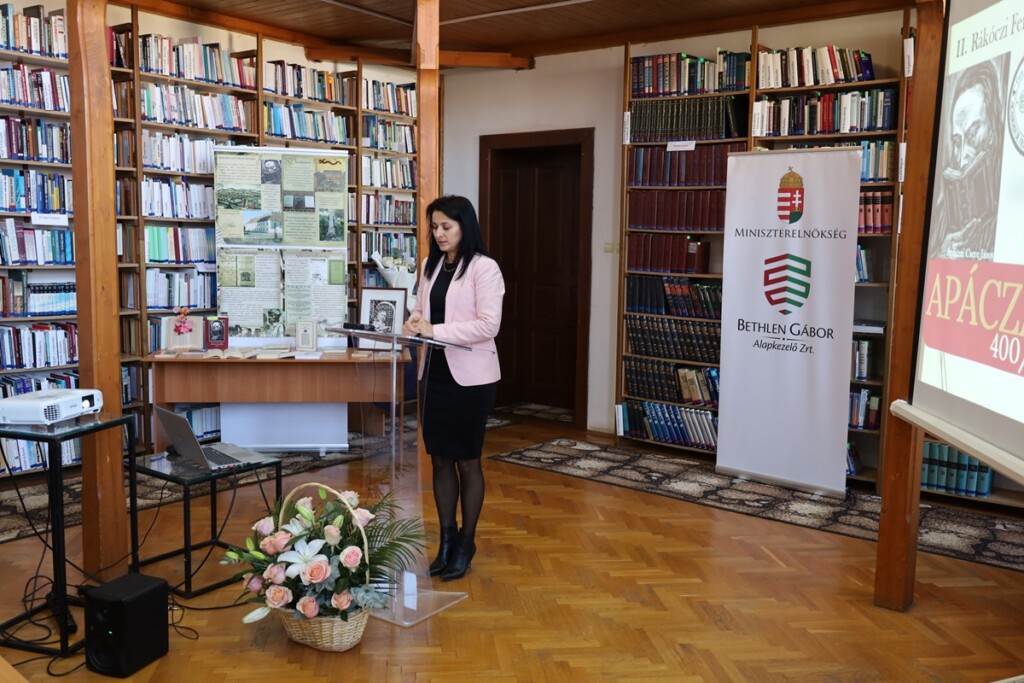
She added that over the past three decades, the library has continuously expanded and renewed itself. Today, it preserves more than 145,000 documents, including some 86,000 books, making it the largest Hungarian-language professional library in Transcarpathia. Its collection grows purposefully, with particular attention to works related to the region. Keeping pace with modern requirements, the library is now fully digitized, and its electronic catalog can be accessed from anywhere in the world.
Erika Sass emphasized: “The library is not merely a place for storing books—it is a space for learning, research, and community.” She explained that the emergence of digitalization and artificial intelligence is not viewed as a threat but as an opportunity. By adapting to the challenges of the 21st century, the library has transformed into a digital knowledge center, where traditional books and online resources complement each other in serving education and research.
At the anniversary event, Ildikó Orosz, President of the University, also addressed the audience.
“The library started from nothing, yet it has become one of the cornerstones of Hungarian higher education in Transcarpathia,”
she emphasized, recalling the A Book for a Book for Transcarpathia campaign, which helped build the library’s first major collection of tens of thousands of volumes—creating a shared treasure trove of knowledge. The library continues to collect and preserve everything that forms part of the intellectual heritage of the Hungarian community in Transcarpathia.
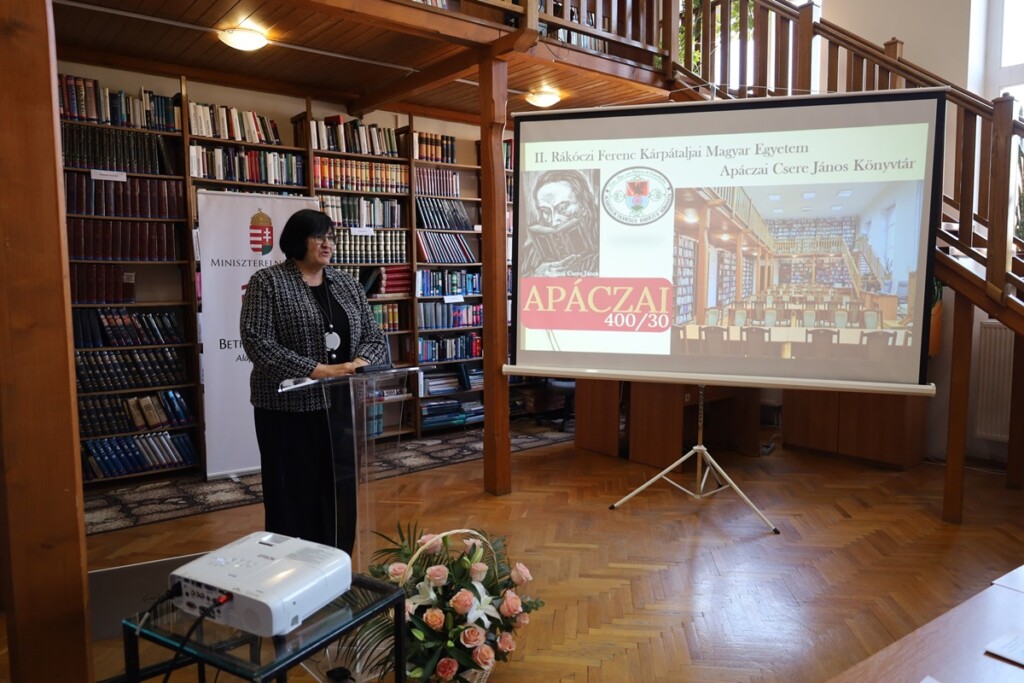
Dr. Ibolya Nagy Szamborovszkyné, the library’s former director, shared her recollections: “Throughout the past three decades, the institution has always been at the forefront of implementing new technologies. The creation of digital databases, the integration into electronic information systems, and the establishment of an institutional repository all demonstrate the library’s ability to keep pace with international developments. One of the most important upcoming projects is the introduction of a *discovery* search system, which will make printed and digital materials accessible through a unified interface.”
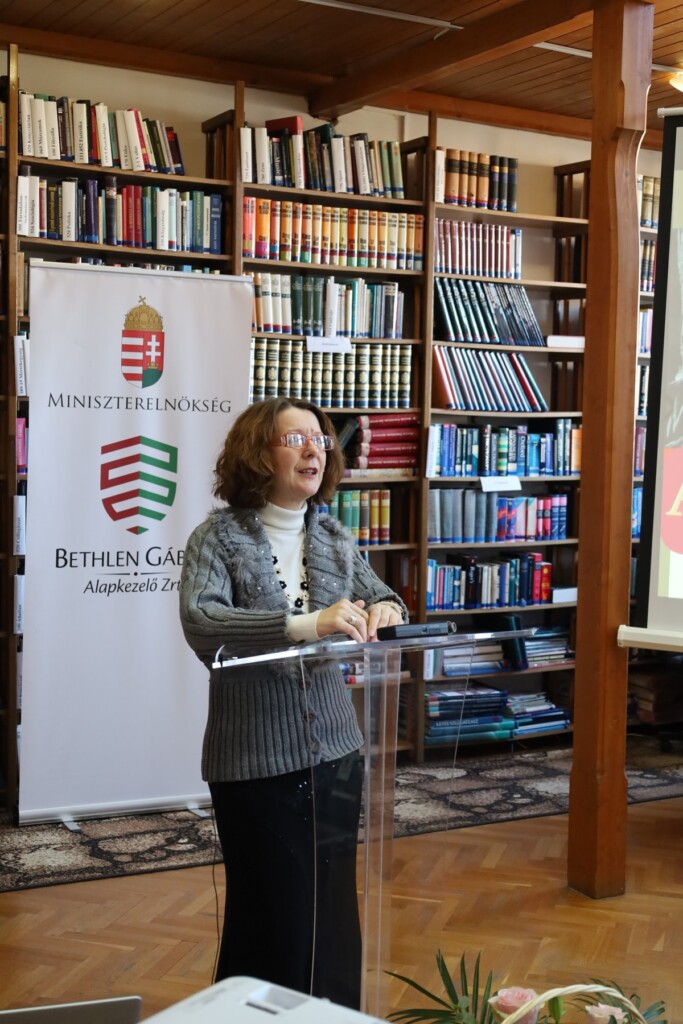
At the event, György Balogh, consul of the Consulate of Hungary in Beregszász, also praised the library. In his speech, he compared the noble mission of preserving and passing on knowledge to the wisdom of a man planting a walnut tree—planting not for himself, but for future generations.
“Libraries ensure that the values of the past bear fruit for the future,”
he said.
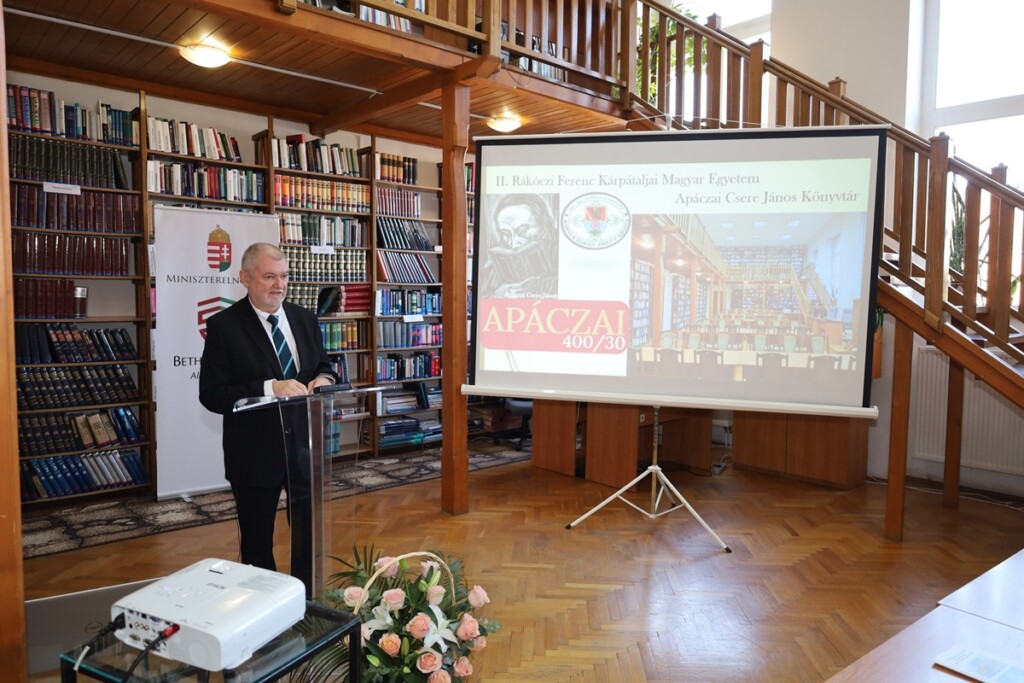
A touching moment of the celebration came when attendees expressed gratitude to the library’s past and present staff, who for three decades have served readers and the university community alike. The commemoration concluded with a recital by Szilveszter Ferku, laboratory assistant of the Department of Philology, who performed Mihály Babits’s poem Rhythm on the book.
Today, the 30-year-old János Apáczai Csere Library continues to faithfully carry forward the legacy of its namesake—building a bridge between past and future, between people and knowledge.
-
This article is also available in
Українська
Magyar

